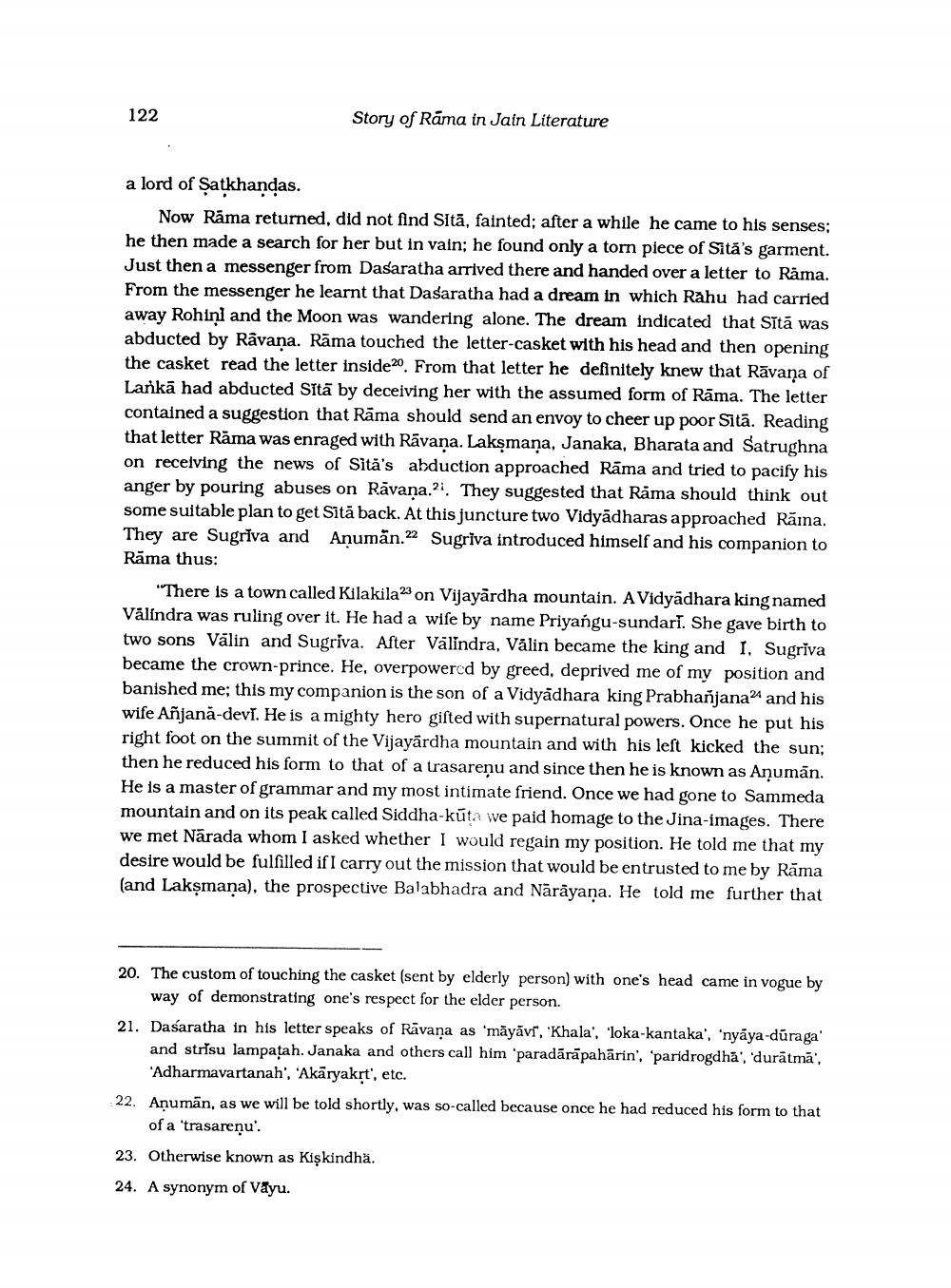________________
122
Story of Rāma in Jain Literature
a lord of Şatkhandas.
Now Rama returned, did not find Sitā, fainted; after a while he came to his senses; he then made a search for her but in vain; he found only a torn piece of Sita's garment. Just then a messenger from Dasaratha arrived there and handed over a letter to Rama. From the messenger he learnt that Dasaratha had a dream in which Rahu had carried away Rohini and the Moon was wandering alone. The dream indicated that Sita was abducted by Ravana. Rāma touched the letter-casket with his head and then opening the casket read the letter inside20. From that letter he definitely knew that Rāvana of Lankā had abducted Sita by deceiving her with the assumed form of Rāma. The letter contained a suggestion that Rama should send an envoy to cheer up poor Sitā. Reading that letter Rāma was enraged with Rāvana. Lakşmaņa, Janaka, Bharata and Satrughna on receiving the news of Sita's abduction approached Rāma and tried to pacify his anger by pouring abuses on Rāvana.21. They suggested that Rama should think out some suitable plan to get Sitā back. At this juncture two Vidyadharas approached Rāma. They are Sugriva and Anuman.22 Sugriva introduced himself and his companion to Rama thus:
"There is a town called Kilakila23 on Vijayārdha mountain. A Vidyadhara king named Välindra was ruling over it. He had a wise by name Priyangu-sundari. She gave birth to two sons Välin and Sugriva. After Välindra, Válin became the king and I, Sugrīva became the crown-prince. He, overpowered by greed, deprived me of my position and banished me; this my companion is the son of a Vidyadhara king Prabhañjana24 and his wife Añjana-devs. He is a mighty hero gifted with supernatural powers. Once he put his right foot on the summit of the Vijayārdha mountain and with his left kicked the sun; then he reduced his form to that of a trasareņu and since then he is known as Aņumān. He is a master of grammar and my most intimate friend. Once we had gone to Sammeda mountain and on its peak called Siddha-kuta we paid homage to the Jina-images. There we met Nārada whom I asked whether I would regain my position. He told me that my desire would be fulfilled if I carry out the mission that would be entrusted to me by Rāma (and Lakşmana), the prospective Balabhadra and Nārāyana. He told me further that
20. The custom of touching the casket (sent by elderly person) with one's head came in vogue by
way of demonstrating one's respect for the elder person. 21. Dasaratha in his letter speaks of Rāvana as māyāvi', 'Khala, 'loka-kantaka', 'nyāya-duraga
and strisu lampatah. Janaka and others call him 'paradārāpahārin', 'paridrogdha', 'durātmā,
Adharmavartanah', 'Akaryakrt', etc. 22. Aņumān, as we will be told shortly, was so-called because once he had reduced his form to that
of a 'trasarenu' 23. Otherwise known as Kiskindha.
24. A synonym of Vayu.




